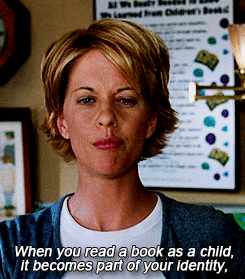Written by Basilisa Perkins | Jul 19, 2017 4:00:00 AM
Exciting. Delightful. A joyful experience for the mind and soul, escaping into other worlds. This is the power of reading. Frustrated. Discouraged. Feeling like a failure. Being locked out of the experience of discovering new places and adventures. That is how most struggling readers, like my youngest daughter Kate, feel. Parents remember the first book which really captivated our kid’s imagination. We knew that feeling with our eldest daughter. But reading with Kate was very different. She wrestled with decoding words and fought hard to only make little progress. Her frustration would overwhelm her and make her explode in anger. [pullquote]When confronted with reading, she would literally run in the other direction.[/pullquote] She would shrink into the most unhappy, miserable version of herself when faced with even the shortest passage. It was heartbreaking to witness her painful relationship with the written word and stressful on our family.
Decoding Mysterious Words
Kids who find it hard to read are usually struggling to decode. Decoding is being able to put together letter-patterns and sounds in order to understand words and figure out new ones quickly. Without effective decoding, kids don’t develop the fluency they need to understand what they are reading. It’s a vicious cycle, trapping information they may find interesting and challenging, which would in turn grow their love of reading.
Finding What Works for Your Kid
[pullquote position="right"]We did whatever we could to foster her unique appreciation of books[/pullquote], while knowing the words were still elusive. We discovered audio books and digital subscriptions like Learning Ally. She gained access to any book her heart desired. She could check out a book and listen to the story, following along with her finger over the words. This was how she discovered some of her favorite characters. Among her favorites was Amelia Bedelia—funny and unafraid to learn from her mistakes. We also encountered the brave Kaya from the "American Girl" series—a girl growing up in the Northwest among her Nez Pierce tribe. We laughed together at the crazy tales of Fudge in New York City. And after reading books about Ramona, we would remember her family every time we used the crock pot. (Ramona’s family forgot to plug theirs in, and when they got home there was no dinner awaiting them.) The interests grew. Soon we were checking out cookbooks and books about seashells, arts and crafts and ancient Egypt. Finally, some reading skills, like sounding out words or recognizing sight words, are slowly emerging through a lot of effort on her part. Supporting a reluctant or struggling reader at home is a hard road, but we have no other choice. For us, this journey has brought us close, making reading a fundamental part of our family life. It’s even rekindled my own love of reading great books. Curious, engaged and seeing the world through other people’s eyes. Being entertained for hours without needing to recharge an electronic device. Kids with reading disabilities deserve the magic of books too. Do not give up.
An original version of this post appeared on the Faces of Education blog as Trying To Read Turned Her Into The Most Unhappy, Miserable Version Of Herself.